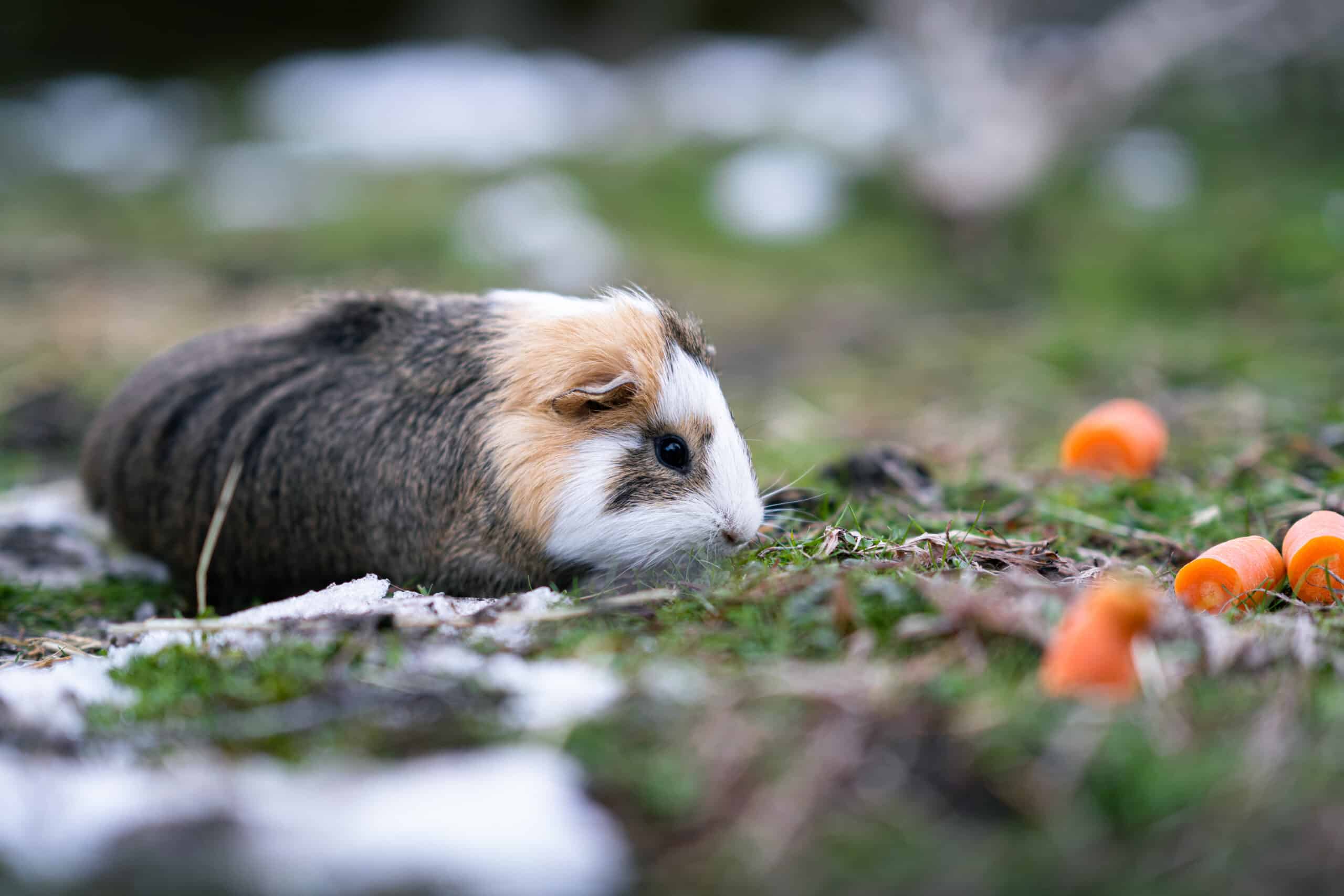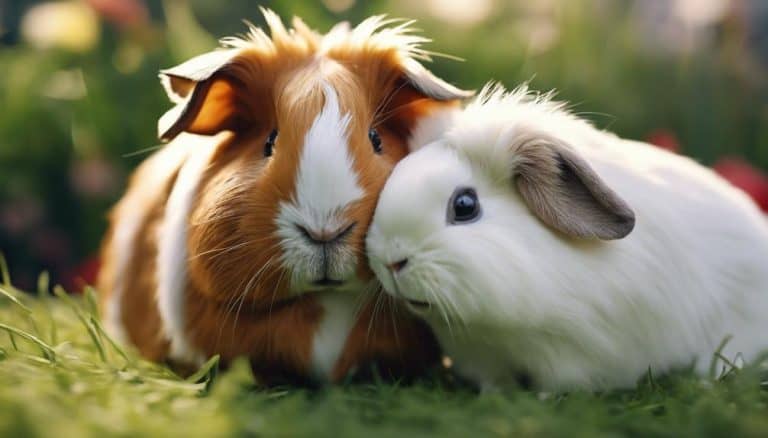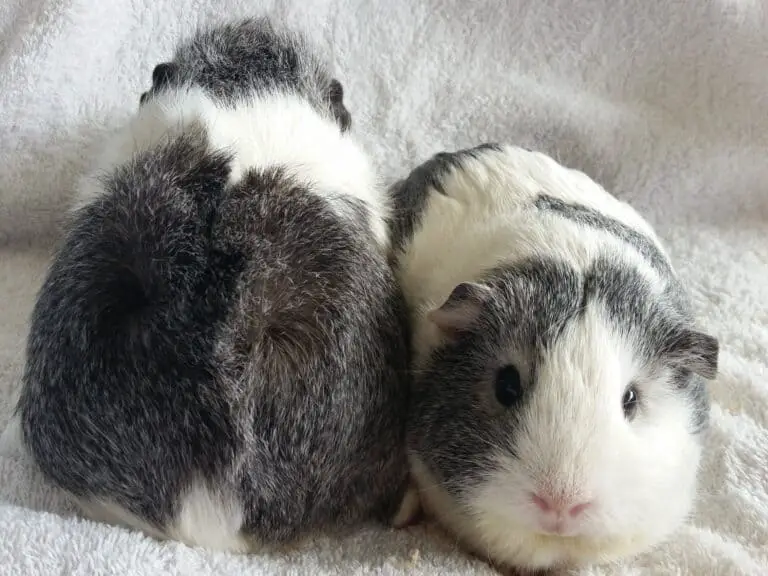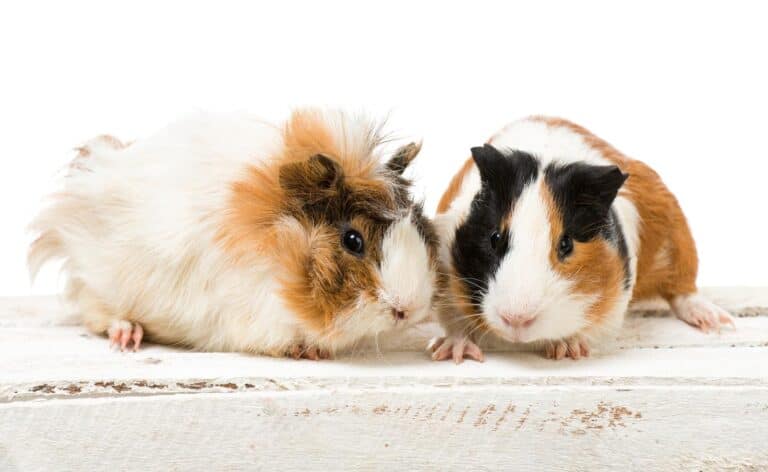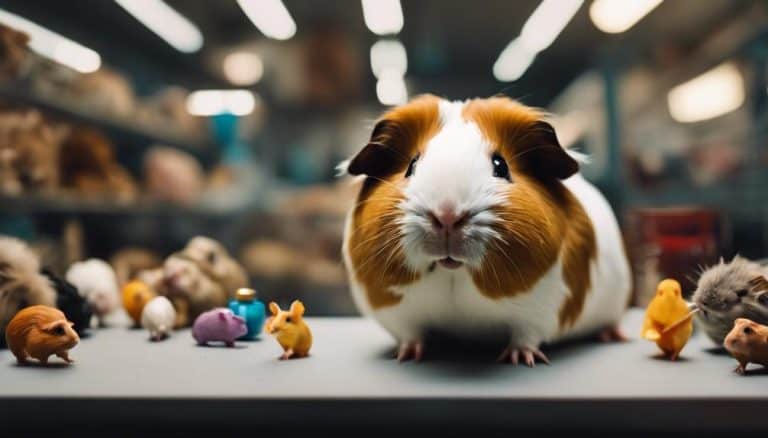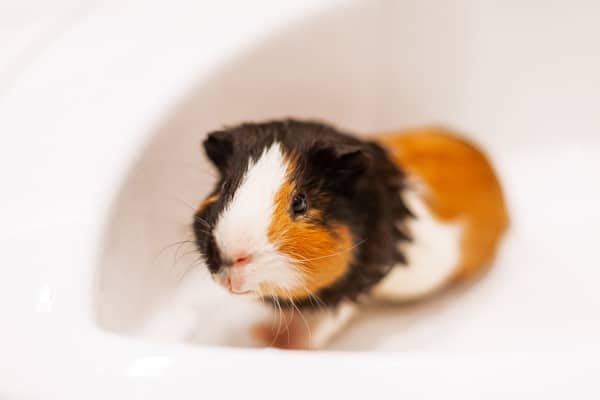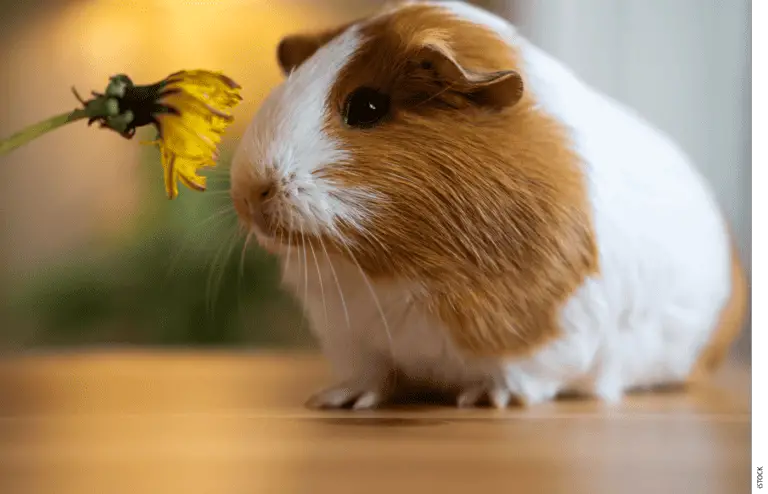Can Expired Hay or Pellets Harm Your Guinea Pig’s Health?
If you are a cavy owner, you know how important it is to feed your guinea pig a healthy, balanced diet. Guinea pigs are herbivores, which means they require a diet rich in vitamins and minerals. In this article, we will explore what to feed your guinea pig and what to avoid, as well as answer the question of whether expired hay or pellets can harm your pet’s health.
What Should I Feed My Guinea Pig?
A healthy adult guinea pig needs to consume 1/8 cup of high-quality guinea pig pellets daily, plus unlimited grass hay. Timothy hay is an excellent choice for guinea pigs as it is high in fiber and low in calories. Alfalfa hay, on the other hand, is high in calcium and protein, which is suitable for young guinea pigs and pregnant or lactating adult guinea pigs.
What Kind of Pellets Should I Feed My Guinea Pig?
Oxbow adult guinea pig food is a great brand to choose. Adult guinea pig food should contain at least 18% fiber, less than 14% protein, and less than 1% calcium. Moreover, they should be stored in an airtight container and kept in a dry, cool place.
Should I Feed My Guinea Pig Fresh Food?
Fresh food rich in vitamin C is essential for your guinea pig’s health. Guinea pigs cannot produce vitamin C themselves, so they need to consume it daily. You can feed your guinea pig small amounts of fresh fruit and vegetables such as cucumber, bell pepper, and strawberries. Please ensure they’re clean, fresh, and remove the item from their cage if they don’t eat it within four hours, as fresh food can quickly become a breeding ground for bacteria.
What Nutritional Value Do Pellets Have?
Pellets provide a high concentration of nutrients that your guinea pig needs to stay healthy. Pellets are a significant source of fiber, which keeps your guinea pig’s digestive system healthy. Besides that, pellets contain vitamins and minerals, which your guinea pig needs to stay healthy and strong.
Why is Vitamin C Important for Guinea Pigs?
Guinea pigs need vitamin C to stay healthy. Without an adequate amount of vitamin C, your guinea pig can develop a condition called scurvy. Guinea pigs can’t produce vitamin C, which means that it is up to you, as a pet owner, to ensure your pet gets enough vitamin C in their diet.
How Can I Ensure My Guinea Pig Gets Enough Vitamin C?
The most natural way to ensure your guinea pig gets enough vitamin C is to provide them with fresh fruits and veggies high in vitamin C. Carrots, bell peppers, strawberries, and broccoli are good examples. A vitamin C supplement is also available on the market and can be added to the water or mixed in with your guinea pig’s food.
What Happens if My Guinea Pig Doesn’t Get Enough Vitamin C?
If your guinea pig does not consume enough vitamin C, their immune system will be weakened, and they may develop a condition called scurvy. Symptoms of scurvy in guinea pigs include lethargy, loss of appetite, unclear eyes, and rough coat. If left untreated, scurvy can lead to severe health problems and even death.
What Foods are a Good Source of Vitamin C for Guinea Pigs?
As mentioned earlier, some excellent sources of vitamin C for guinea pigs include carrots, bell peppers, strawberries, and broccoli. Please ensure that you only offer fresh, clean, and washed fruits and veggies and remove them from the cage if your guinea pig does not eat them.
What Should I Know About Pellets and Hay?
The shelf life of pellets and hay varies, and it is crucial to ensure your cavy is eating fresh food. Pellets should be stored in an airtight container and kept in a dry, cool place. Typically, the expiration date on the pellet bag can give you an indication of when it should be replaced. Fresh hay should be free from mold and insects and should smell fresh.
How Long is the Shelf Life of Pellets?
The shelf life of pellets varies and depends on the brand. Generally, it would be best to consult the package or contact the manufacturer for specific instructions.
Can Expired Pellets Harm My Guinea Pig?
Eating expired pellets can harm your guinea pig’s health. It is best to purchase fresh pellets and store them correctly to avoid feeding your guinea pig spoiled food.
What Kind of Hay Should I Feed My Guinea Pig?
Timothy hay is the most common type of hay fed to guinea pigs and is best for adult guinea pigs. Alfalfa hay is suitable for young guinea pigs and pregnant or lactating adult guinea pigs as it is higher in protein and calcium.
What Should I Avoid Feeding My Guinea Pig?
Guinea pigs should never consume foods that are high in fat or sugar as it can lead to health problems like obesity or diabetes. Moreover, certain kinds of food like kale or dried fruit should be avoided as it can lead to digestive issues or bladder stones.
Can My Guinea Pig Eat Kale?
Kale should be avoided because it is high in calcium and oxalic acid, which can lead to bladder stones.
Can My Guinea Pig Eat Foods High in Fat?
Guinea pigs should not eat foods high in fat, such as seeds or nuts, as it can lead to obesity and other health problems.
Can Feeding My Guinea Pig Too Much Calcium Cause Bladder Stones?
Feeding your guinea pig too much calcium can cause bladder stones, which can be very painful and life-threatening. Calcium-rich foods such as alfalfa hay should be fed sparingly.
What Should I Do if My Guinea Pig Stops Eating?
If your guinea pig stops eating, it could be an indication of a digestive problem, and you should consult your vet immediately. In some cases, your vet may recommend feeding your guinea pig Oxbow Critical Care, a special food designed for guinea pigs that aids in digestion.
What is Critical Care and When Should I Use it?
Oxbow Critical Care is a special food for guinea pigs that is fed to them if they have stopped eating or need help digesting their food. You should use it as directed by your vet.
How Can I Help My Guinea Pig’s Digestive System?
To keep your guinea pig’s digestive system healthy, you should feed them a diet rich in fiber, provide them with fresh water, and ensure they have access to a clean and safe environment. Additionally, it would be best to avoid feeding your guinea pig food rich in fat, sugar, and calcium.
What Should I Know About Feeding a Baby Guinea Pig?
Baby guinea pigs require a high protein diet and should be fed alfalfa hay and high-quality guinea pig pellets. It is crucial to ensure they have a clean, safe, and warm environment and are provided with enough food and water. In conclusion, feeding your guinea pig a healthy, balanced diet is essential to their health and well-being. It is crucial to avoid feeding them food that is high in fat, sugar, and calcium and ensure they consume enough vitamin C. Additionally, it is essential to store their food correctly and remove any expired or spoiled food from their cage.

